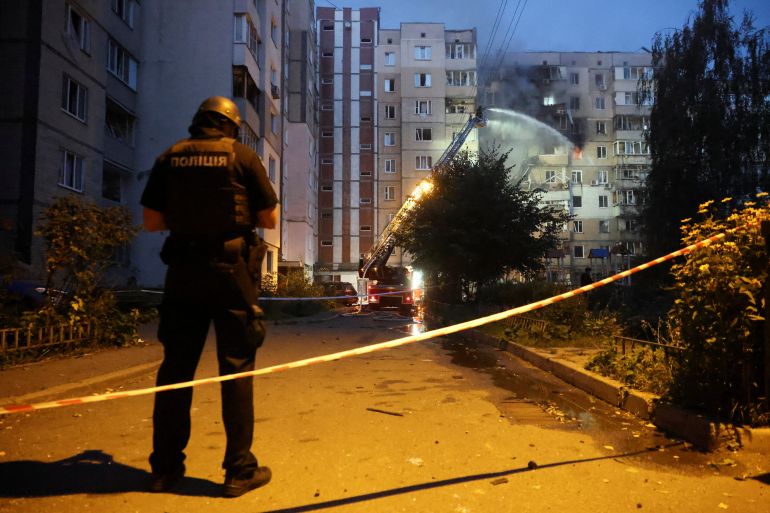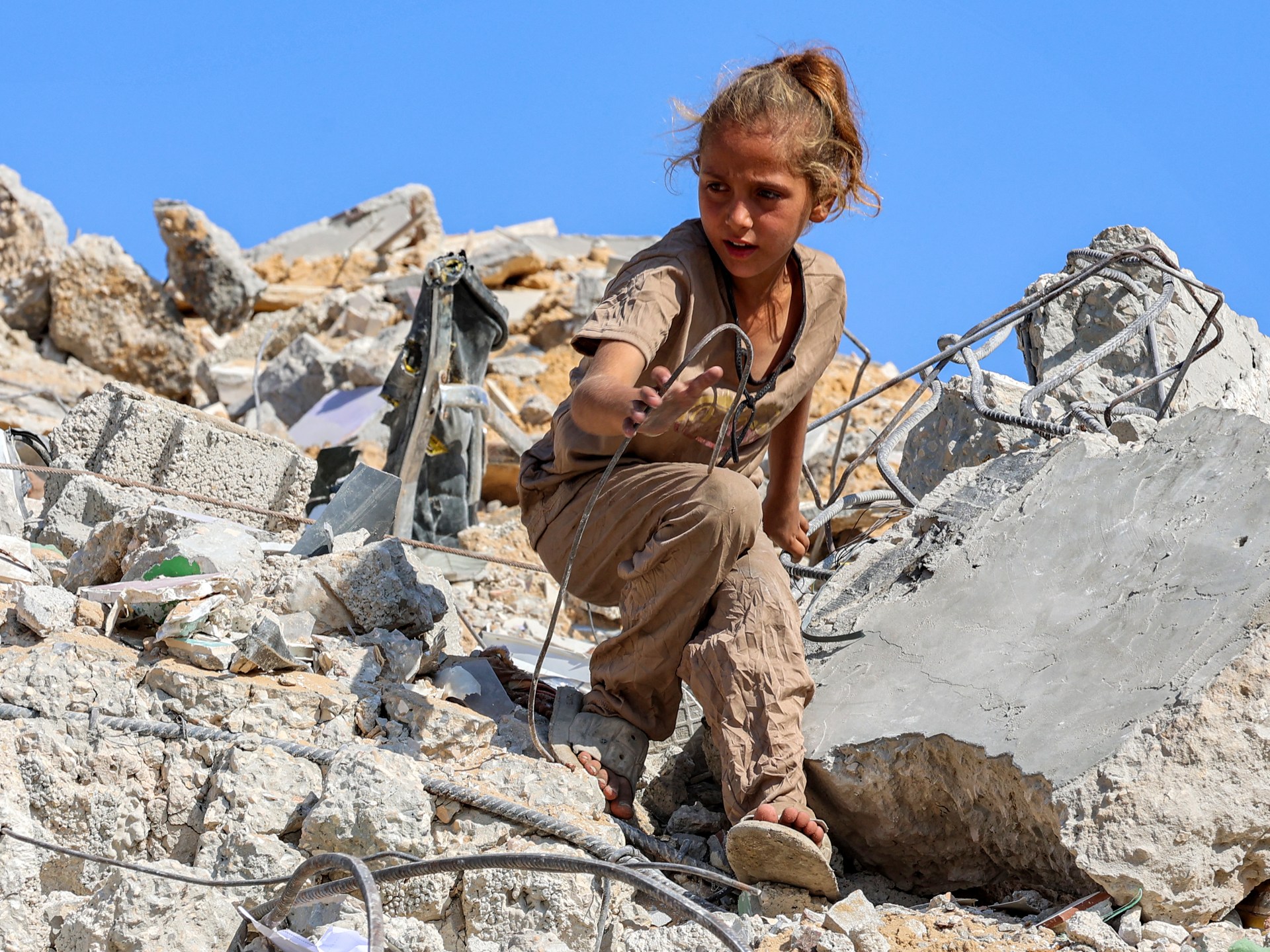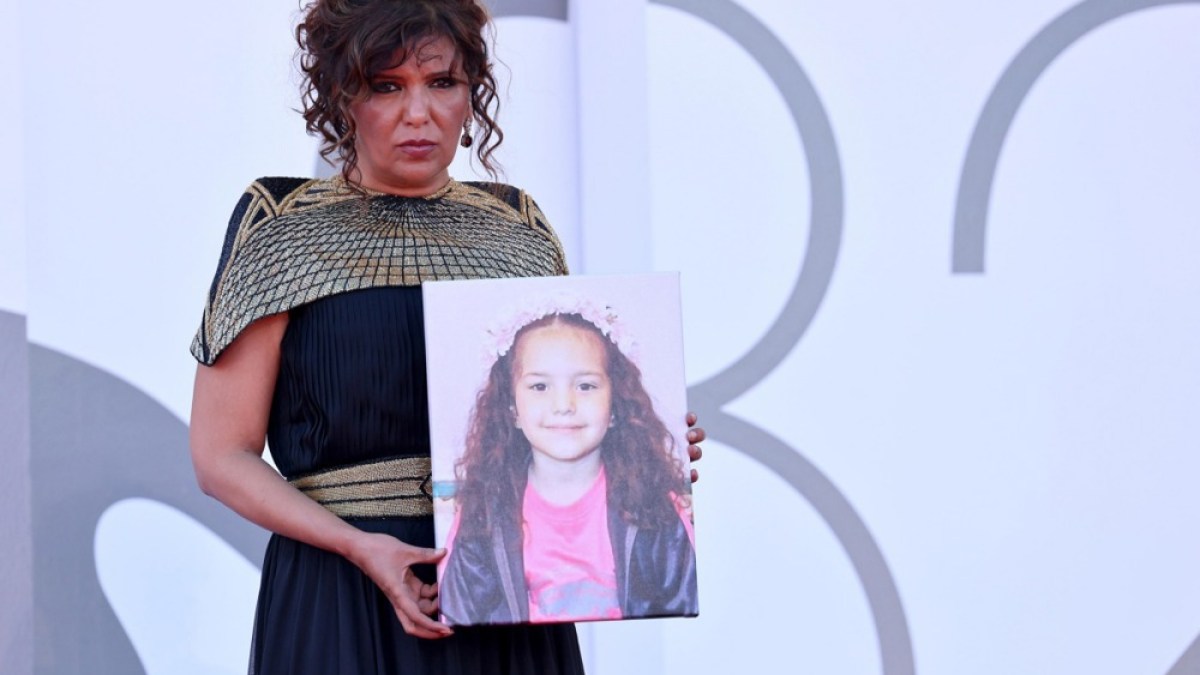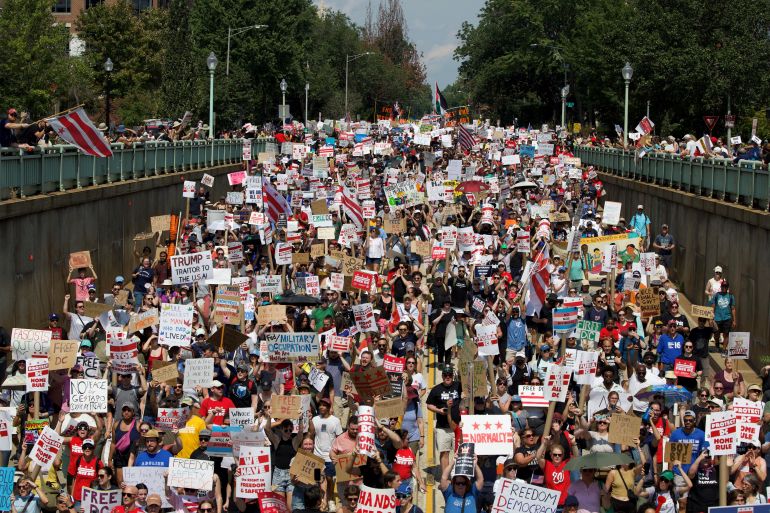At least three people have been killed, 18 wounded, and dozens of buildings set on fire in Kyiv, including the seat of the government, following a Russian drone and missile attack in Ukraine‘s capital, according to officials and local news reports.
Kyiv Mayor Vitali Klitschko was initially quoted by the Reuters news agency as saying that the attack early on Sunday killed an infant and a young woman, and sparked fires at several high-rise buildings in the city’s west and east.
Recommended Stories
list of 3 itemsend of list
Tymur Tkachenko, the head of Kyiv’s city administration, later confirmed the body of a one-year-old child was dug out of the rubble by rescuers.
Medics were called to the leafy Darnytskyi district to the east of the Dnipro River, where a four-storey apartment building caught fire from the debris of drones destroyed in the overnight attack, Klitschko added.
Drone debris also caused fires atop a 16-storey and two nine-storey buildings in the Sviatoshynskyi district in Kyiv’s west, he said.
Witnesses told Reuters they heard a series of explosions shaking the city, which sounded like air defence units in operation.
The Ukrainian news website Kyiv Independent also reported that an elderly woman died in a shelter in the city’s Darnytskyi district following the attack, although the cause of her death was not immediately clear.
The state emergency service confirmed at least one death in Kyiv and 18 injuries.
The attacks, which also knocked out power in the city, left smoke rising from the roof of Ukraine’s cabinet, housing the offices of its ministers.
“For the first time, the government building was damaged by an enemy attack, including the roof and upper floors,” said Ukraine’s Prime Minister Yulia Svyrydenko. “We will restore the buildings, but lost lives cannot be returned.”
“The world must respond to this destruction not only with words, but with actions. There is a need to strengthen sanctions pressure, primarily against Russian oil and gas,” she said.
Russia ramps up attacks on Ukraine
Russian attacks on Ukraine have increased in recent days, even as United States President Donald Trump stepped up diplomacy to end the three-and-a-half-year war, although those efforts have not yet been successful.
Ukraine’s air force said Russia launched 805 drones and 13 missiles at Ukraine overnight.
Tkachenko, the head of the military administration of the capital, said on Telegram that Russia was “deliberately and consciously striking civilian targets”.
Moscow did not immediately issue any comment on the attacks.
Both sides deny targeting civilians, but thousands have died in the war Russia launched with a full-scale invasion of Ukraine in February 2022.
Early on Sunday, most of Ukraine was under air raid alerts after Ukrainian air force warnings of Russian missile and drone attacks.
Tens of explosions shook the central Ukrainian city of Kremenchuk, cutting power to parts of it, Mayor Vitalii Maletskyi said on Telegram.
Russian strikes on Kryvyi Rih, Ukrainian President Volodymyr Zelenskyy’s hometown, in the same region, targeted transport and urban infrastructure, Oleksandr Vilkul, the head of the military administration, said on Telegram, but with no injuries reported.
In the southern city of Odesa, civilian infrastructure and residential buildings were damaged, with fires breaking out in several apartment blocks, regional Governor Oleh Kiper said on Telegram.
Earlier, a separate Russian attack in Ukraine’s northeastern Sumy region killed one person and wounded several others, regional military Governor Oleh Hryhorov said on Telegram.
A Russian drone attack on Saturday evening in Zaporizhia in the southeast also wounded at least 15 people, four of whom were hospitalised, said Ivan Fedorov, the head of the military administration in the region, which is partially occupied by Russia.
Kyiv says it caused ‘comprehensive fire damage’ to Russian pipeline
Meanwhile, the commander of Ukraine’s drone forces, Robert Brovdi, said it attacked the Druzhba oil pipeline in Russia’s Bryansk region.
Brovdi posted on Telegram that “comprehensive fire damage” was inflicted on the pipeline.
The transit pipeline supplies Russian oil to Hungary and Slovakia.
Moscow has not commented on the Ukrainian claim.






